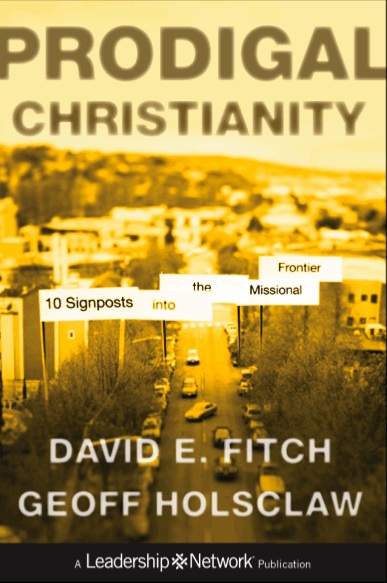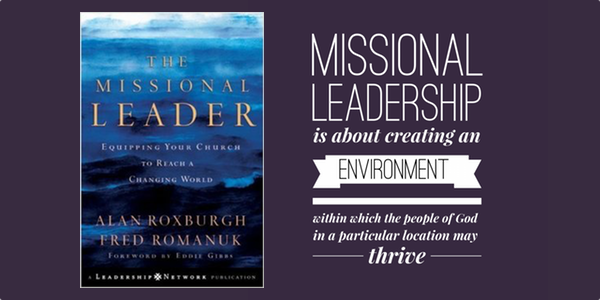 The days when the West was filled with Christian institutions and one could assume everyone was (at least a nominal) Christian days are coming to an end. Now, the Church has to figure out who it is when the culture isn’t “Christian”.
The days when the West was filled with Christian institutions and one could assume everyone was (at least a nominal) Christian days are coming to an end. Now, the Church has to figure out who it is when the culture isn’t “Christian”.
The Anabaptist tradition helps a lot with this, perhaps because they were formed as a rejection of 16th century Christendom. Unfortunately, much of the tradition is “separatist”, avoiding engagement with the outside. This is where the growing missional conversation is so important: it gives the church a theology and approach for loving, serving and proclaiming in a culture where they are minorities.
Authors Fitch and Holsclaw call this missional-anabaptist approach “Prodigal”. This is drawn from Karl Barth’s interpretation of Jesus as the ideal “prodigal son”, a “radical missionary… that the Father has sent the Son into the far country to redeem the world”. Their book Prodigal Christianity: 10 Signposts into the Missional Frontier suggests seven practices should shape the life of the church today.
1. The Hospitality of the Table
In instituting the Lord’s Supper, Jesus is creating a practice of humility, egalitarianism and hospitality. The act of serving and eating with people who are different brings the reality of the kingdom into the present, and spills into other opportunities for service throughout the week.
2. Proclamation of the Gospel
“Proclamation is the act of declaring a reality (or truth) that others have yet to see (the kingdom has come!)” They give the example of responding to others by reminding them “Jesus is Lord of your situation,” or asking the question “what do you think God is asking of you?”
3. Reconciliation
They suggest practicing the method of reconciliation provided by Jesus in Matthew 18. “As we practice this reconciliation in our lives together, we are then able to practice it in the neighborhood, bringing Christ’s in-breaking authority to broken relationships and structures where we live.”
4. Being with People on the Fringes
“Jesus says that when you are truly present with ‘the least of these,’ you are also in his presence and this is a sign of what the kingdom looks like (Matthew 25: 31– 46)”. This means creating opportunities to connect with different types of people often across racial or economic lines, where “we relax, take all agendas off the table, listen, and pay attention in order to listen for God and discover where God is working”.

5. Being with the Children
Jesus taught “when we welcome children, when we are present with them in love and hospitality, Jesus becomes present with us… Only by welcoming and becoming like children can we enter the kingdom of God (18:3)… When we refuse to make children into a separate program or ministry… We find ourselves being transformed by the love of children and the things they teach us.”
6. Fivefold Ministry and Gifts
Jesus is not distant but instead is present through his offer of “gifts for equipping the church: apostles, prophets, evangelists, pastors, and teachers….these gifts are not only for the internal organization of the church…rather, they are necessary for forming the kingdom in each neighborhood.”
7. Kingdom Prayer
Following the model of the Lord’s prayer, Jesus teaches that Kingdom Prayer is “first and foremost about submitting our lives, circumstances, needs, wants, and struggles into God’s coming kingdom…” Such prayer creates space for Christ’s power and healing, removes ego and interacts with tangible issues in one’s life and community.
What do you think of these seven practices? Do they fit the reality of your situation? What would you add?
















 The days when the West was filled with Christian institutions and one could assume everyone was (at least a nominal) Christian days are coming to an end. Now, the Church has to figure out who it is when the culture isn’t “Christian”.
The days when the West was filled with Christian institutions and one could assume everyone was (at least a nominal) Christian days are coming to an end. Now, the Church has to figure out who it is when the culture isn’t “Christian”.





 Tweets
Tweets